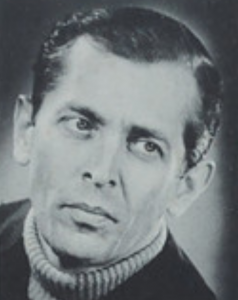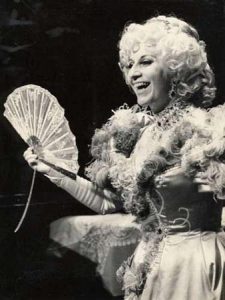Podcast: Play in new window | Download (Duration: 1:36:44 — 104.4MB) | Embed
Subscribe: Spotify | TuneIn | RSS | More
My intention this week to produce a joyous new episode further celebrating contraltos, was undermined by multiple deaths this past week in the musical world, including French pop icon Françoise Hardy, Swiss tenor Eric Tappy, American art song icon Paul Sperry, and R&B diva Angela Bofill, capped by the tragic demise of young Belgian coloratura soprano Jodie Devos of breast cancer at the age of only 35. The episode, thus, begins with brief musical excerpts from all of these recently departed artists. In the main episode, I spread the contralto net even wider than last time, focusing on low-voiced doyennes of popular song. We hear jazz singers (Betty Carter, Sarah Vaughan, Carmen McRae); stars of stage, screen, and radio (Marlene Dietrich, Polly Bergen, Connee Boswell, Alice Faye, Lisa Kirk, Kate Smith); purveyors of the Blues (Bessie Smith, Bertice Reading); French cabaret singers (Damia, Barbara); fado, rebetika, and tango artists (Amália Rodrigues, Milva, Maria Bethânia, Sotiria Bellou); and late-20th century pop icons (Cher, Tina Turner, Karen Carpenter, Annie Lennox); with a few delightful surprises along the way. I should also note, in honor of Pride Month, that more than a few of these artists flaunted societal norms regarding their affectional preferences, living either furtively or openly at a time when such expressions could have serious consequences. I love putting this kind of episode together and I hope that you enjoy the kaleidoscopic sounds that emerge from the throats of these deep-voiced pop divas.
Countermelody is a podcast devoted to the glory and the power of the human voice raised in song. Singer and vocal aficionado Daniel Gundlach explores great singers of the past and present focusing in particular on those who are less well-remembered today than they should be. Daniel’s lifetime in music as a professional countertenor, pianist, vocal coach, voice teacher, and journalist yields an exciting array of anecdotes, impressions, and “inside stories.” At Countermelody’s core is the celebration of great singers of all stripes, their instruments, and the connection they make to the words they sing. By clicking on the following link (https://linktr.ee/CountermelodyPodcast) you can find the dedicated Countermelody website which contains additional content including artist photos and episode setlists. The link will also take you to Countermelody’s Patreon page, where you can pledge your monthly support at whatever level you can afford.





